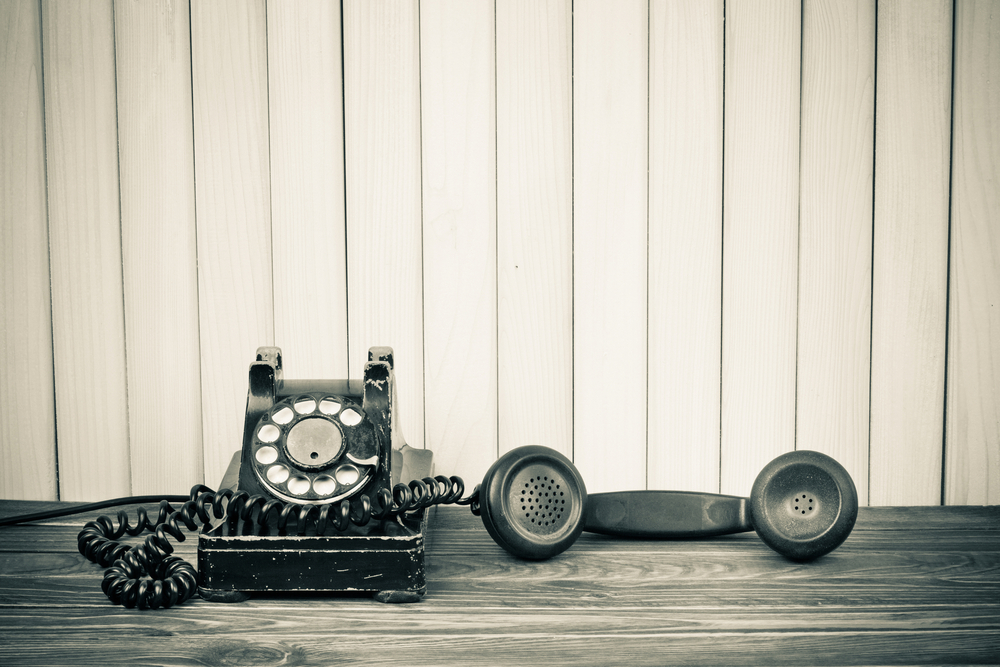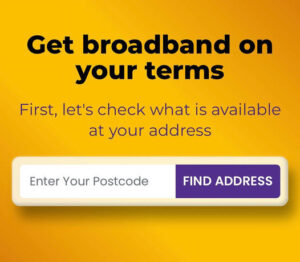Are Landlines Being Phased Out in the UK?

It seems that broadband is gripped by an air of innovation, it seems. In a recent blog post, we looked into how the newly dubbed VMO2 are upgrading their network. Similarly, Ofcom announced new flexible regulations to incentivize Openreach and competitors to invest and build a full-fibre future for the UK. In that blog post, we touched upon the hundred-year-old copper network that keeps the majority of Brits connected.
The lifeline of our landlines is literally 19th Century technology. The short answer to this blog’s question is “yes” – landlines will go. But as is often the case, short answers often lead to more questions.
But don’t worry, Broadband Freedom has you covered! Let’s jump straight into your most pressing concerns first.
How Will My Internet Work Without Landline?
You will need full-fibre broadband – also known as fibre-to-the-premises or FTTP – to have access to a fixed internet without a landline. Alternatively, you can get Virgin Media’s cable broadband.
Virgin currently cover approximately 52% of the country and only 21% of UK properties have access to full-fibre broadband. Openreach has already started the switchover from the modern version of the Public Switched Telephone Network (PSTN). This will be followed by every UK home being switched to an internet-based connection by landline operators.
With Openreach, VMO2 and altnets currently given the go-ahead to press on with upgrades to the digital infrastructure, your broadband services and phone connection will be swapped over to FTTP and VoIP (voice-over-internet-protocol). By the time the lines are switched over, you will have the digital infrastructure available in your area to accommodate the new changes.
Will I Need To Do Anything To Make These Changes Work?
Although the use of phone lines is beginning to decline (save for a small revival last year during the pandemic), many Brits may want to keep telephone sets that they’re familiar with. Let’s face it; some people just don’t like change.
Whilst it is claimed that old landline phones will still work even after the changes have been made on the network, it is reported that moving to another part of the country will mean your phone number will change. Plus, your phone may need to be plugged into a new socket or your internet router.
The good news is you won’t have to change your current handset. It will automatically be connected to an alternative system. This will happen without you even knowing it – at least that’s what Openreach are planning and testing in trials.
So, you won’t need to do any more than the usual, say if you’re switching broadband provider or installing upgraded hardware.
When Will Landline Be Switched Off?
The current PSTN copper cable network will be switched off in 2025. This almost coincides with Openreach’s target to switch the majority of the UK over to a full-fibre network. Fibre-optic cables increase the speed and reliability of broadband. They also provide the infrastructure to accommodate VoIP, which improves the quality of phone calls and is cheaper to maintain than the older PSTN copper cables.
Businesses and homes that have already switched over to VoIP claim the costs of calls are substantially cheaper. Although this does not mean broadband will be cheaper per se, Ofcom has vowed to protect all customers equally. Meaning vulnerable customers will have access to affordable services i.e., full fibre which is an integral component to host VoIP calls from properties. So, if you don’t currently have an internet connection at home, the new fibre upgrades will have affordable options for you to join the digital revolution!
If cheaper calls still don’t sway you to switch from the current analogue system, you will have no choice but to if you switch provider or upgrade your broadband services. Either way, after 2025, the long-lived landline will be completely phased out.
Is VoIP Better Than Landlines?
We already know that VoIP is substantially cheaper. Broadband Freedom’s competitive call bundles are already cheaper than the majority of our competitors. And that’s with the majority of our services running on copper!
VoIP also comes with over 40 additional features, which is particularly useful for businesses. Some examples include three-way calling, priority alerts, voicemail forwarding, voicemail greetings, anonymous call rejection, business text messaging, call analytics, call queues and call recording and rating.
VoIP essentially gives people more control over their calls. What’s more, you don’t need a phone to make or receive a VoIP call. Just a device connected to the internet. You still have the option to keep your house phone if you want.
Which leads us to its reliability. VoIP is only as reliable as the internet connection that it operates on. VoIP calls will work well for the majority of people who are currently on decent and reliable FTTC broadband. Of course, with Ofcom giving Openreach and co a clear path to transform the UK’s digital infrastructure into full fibre, in time the majority of people will be able to make and receive VoIP calls without any issues. At least for the majority of times.
As we all know, sometimes broadband services do encounter some hiccups.
Will VoIP Work if My Broadband Goes Down?
Many experts believe that the quality of VoIP calls should be better than their current counterparts. Voice calls need only a tiny amount of data. That’s all well and good but if there’s a power cut, or the internet goes down? Does that mean your phones will go down?
At the moment house phones receive power from the landline themselves. So, if the household suffers a blackout, people will still be able to use their house phones. Ofcom has made it clear to operators that they need to come up with backup protocols to prevent loss of functionality for landlines. It’s especially important for those people who don’t have mobile phones but still need a phone at home to contact family or the emergency services. As we stated earlier, at this moment in time, broadband innovations are taking huge leaps. Virgin has developed an idea that will see battery-powered backup lines. Apparently, this battery will provide up to one hour of talk time.
Will You Miss Landlines?
What are your thoughts on this? Do you think the changes are coming too fast? Or do you welcome the change?
For us at Broadband Freedom, we’re excited by the possibility of digital infrastructure, backed up by flexible regulations and promises to protect customers and drive innovation. It will only make more advanced broadband services more accessible, reliable, and faster.



